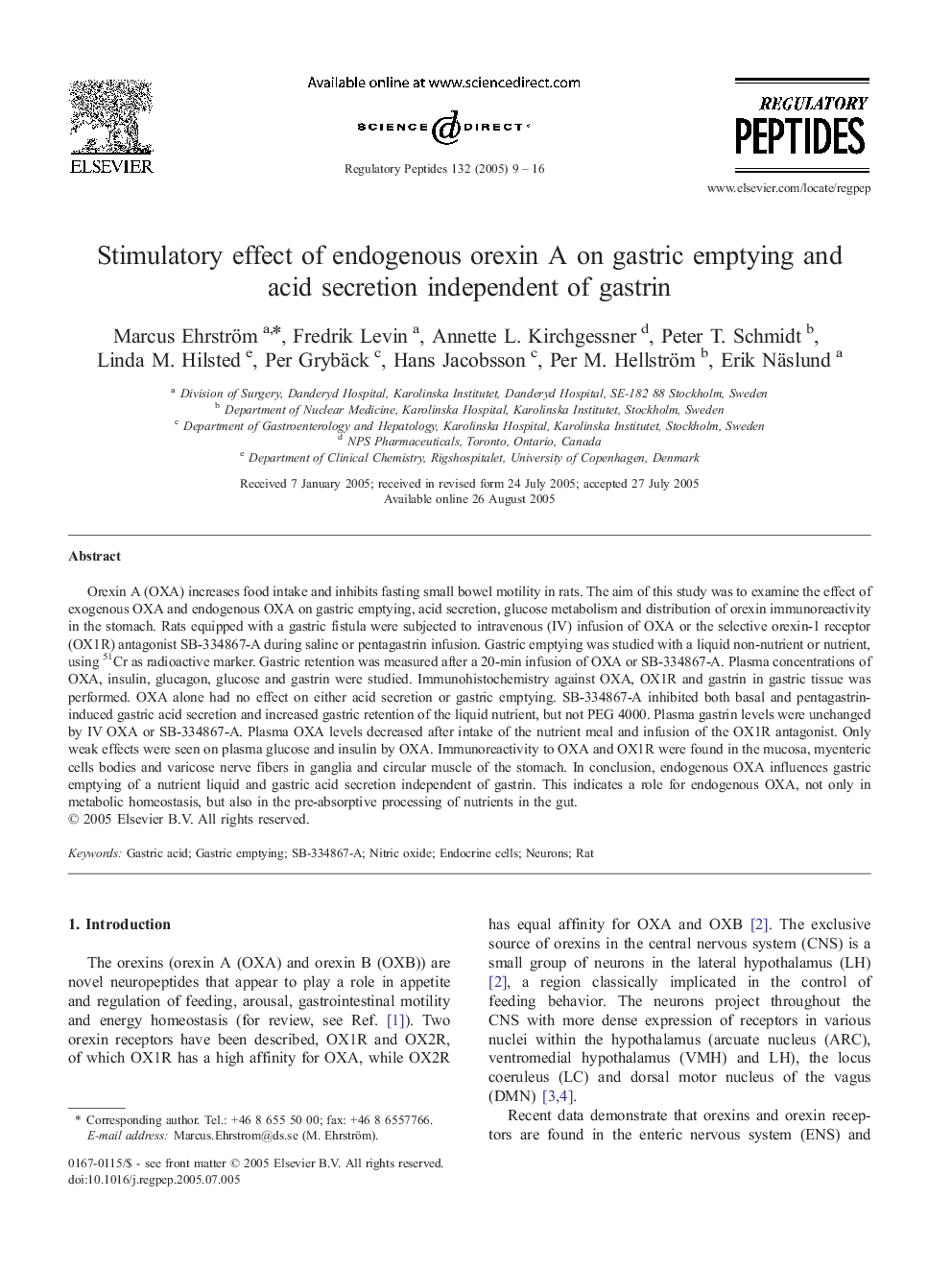| Article ID | Journal | Published Year | Pages | File Type |
|---|---|---|---|---|
| 9894343 | Regulatory Peptides | 2005 | 8 Pages |
Abstract
Orexin A (OXA) increases food intake and inhibits fasting small bowel motility in rats. The aim of this study was to examine the effect of exogenous OXA and endogenous OXA on gastric emptying, acid secretion, glucose metabolism and distribution of orexin immunoreactivity in the stomach. Rats equipped with a gastric fistula were subjected to intravenous (IV) infusion of OXA or the selective orexin-1 receptor (OX1R) antagonist SB-334867-A during saline or pentagastrin infusion. Gastric emptying was studied with a liquid non-nutrient or nutrient, using 51Cr as radioactive marker. Gastric retention was measured after a 20-min infusion of OXA or SB-334867-A. Plasma concentrations of OXA, insulin, glucagon, glucose and gastrin were studied. Immunohistochemistry against OXA, OX1R and gastrin in gastric tissue was performed. OXA alone had no effect on either acid secretion or gastric emptying. SB-334867-A inhibited both basal and pentagastrin-induced gastric acid secretion and increased gastric retention of the liquid nutrient, but not PEG 4000. Plasma gastrin levels were unchanged by IV OXA or SB-334867-A. Plasma OXA levels decreased after intake of the nutrient meal and infusion of the OX1R antagonist. Only weak effects were seen on plasma glucose and insulin by OXA. Immunoreactivity to OXA and OX1R were found in the mucosa, myenteric cells bodies and varicose nerve fibers in ganglia and circular muscle of the stomach. In conclusion, endogenous OXA influences gastric emptying of a nutrient liquid and gastric acid secretion independent of gastrin. This indicates a role for endogenous OXA, not only in metabolic homeostasis, but also in the pre-absorptive processing of nutrients in the gut.
Related Topics
Life Sciences
Biochemistry, Genetics and Molecular Biology
Biochemistry
Authors
Marcus Ehrström, Fredrik Levin, Annette L. Kirchgessner, Peter T. Schmidt, Linda M. Hilsted, Per Grybäck, Hans Jacobsson, Per M. Hellström, Erik Näslund,
